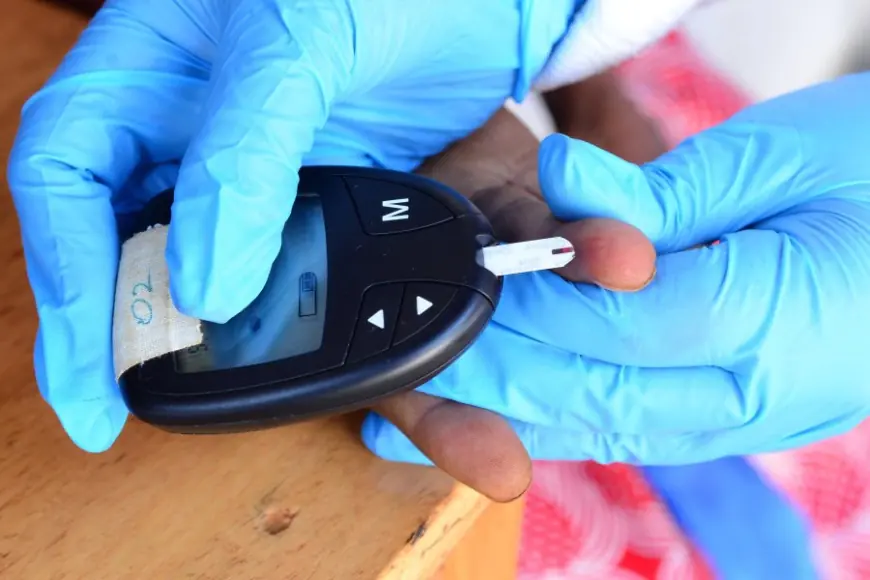New study reveals distinct form of type 1 diabetes in African youth
A study of 894 volunteers in Cameroon, Uganda, and South Africa found 65 percent of youth-onset diabetes cases lacked typical auto antibodies and genetic predispositions. This indicates that many young people in these regions have a non-autoimmune form of type 1 diabetes, unlike the commonly understood autoimmune type.

An international team of researchers has made a key discovery: many children and young adults in Sub-Saharan Africa diagnosed with type 1 diabetes (T1D) may have a different form of the disease - one not caused by the immune system, unlike classic T1D.
This discovery according to experts could change how diabetes is diagnosed, treated and managed across the region, paving the way for more accurate care and better outcomes.
Following a major international study, this discovery challenges long-held beliefs about the disease and raises urgent questions about the potential for misdiagnosis and improper treatment of young patients across the continent.
Published in The Lancet Diabetes & Endocrinology, the study is the largest of its kind ever conducted in Africa and was funded by the UK’s National Institute for Health and Care Research (NIHR). Researchers found that approximately 65% of young people diagnosed with type 1 diabetes in the study lacked both autoimmune markers and genetic risk factors typically associated with the disease. Instead, they appear to have a novel, non-autoimmune subtype, one not captured by current global classifications.
“I was diagnosed at 16 and put on medication for type 2 diabetes, which worsened my condition. It wasn’t until years later that I learned I had type 1 diabetes,” said Edith Mukantwari, a Ugandan youth advocate and co-founder of the Africa Diabetes Alliance.“Before I was diagnosed with type 1 diabetes at 16, nobody in my family or community had ever heard of it, much less knew it could affect children and adolescents.” Edith served as the Public Patient Involvement and Engagement (PPIE) patient advisor on the study
Her story not only highlights the consequences of diagnostic gaps but also reinforces the study’s core finding that a different form of diabetes may be going unrecognised in African children and young people.
To explore whether the subtype exists beyond Africa, the researchers also examined more than 3,000 young people in the US-based SEARCH for Diabetes in Youth study. While a small number of Black American children exhibited similar characteristics, the subtype was absent in white participants, pointing to possible environmental or ancestral influences.
Clinicians participating in the study are already observing important differences in how type 1 diabetes presents among African children, insights that are helping shape the research questions.
“We have seen that children in Africa who have type 1 diabetes often don’t show some of the serious signs doctors usually expect, like having other related diseases such as thyroid or coeliac disease or developing dangerous complications like Diabetic Ketoacidosis when they skip insulin doses. This makes us think the type of diabetes they have might be milder or different from what’s seen in other parts of the world.” Said Dr. Catherine Nyangabyaki Twesigye, Paediatrician at St Francis Hospital Nsambya, one of the clinical research sites in Uganda.
The team is now expanding its work to investigate what causes this unique diabetes subtype, ranging from infections and nutritional factors to environmental exposures. They also hope to determine whether some young, slim individuals diagnosed with type 2 diabetes in Africa may in fact have a milder form of this newly discovered subtype.
The findings highlight a critical gap in global diabetes research, which has often focused on white Western populations. The team is calling for greater investment in region-specific studies, noting that sub-Saharan Africa may be home to distinct forms of diabetes with different causes, trajectories, and treatment needs.
Dr Jean Claude Katte, Principal Investigator (PI) of the Young-Onset Diabetes in Sub-Saharan Africa (YODA) study said: “These new research findings confirm our long-standing suspicion. We have always wondered why many young people diagnosed with type 1 diabetes manage to survive without insulin, at least for some time, which would be unusual in typical type 1 diabetes.”
Professor Moffat Nyirenda, Co-PI and Director of the MRC/UVRI and LSHTM Uganda Research Unit said, “These findings are a wake-up call. They challenge our assumptions about type 1 diabetes and show that the disease may present differently in African children and adolescents. We urgently need to deepen our investigations into the biological and environmental factors driving this form of diabetes and ensure our diagnostic and treatment approaches are fit for purpose in African settings.”
Professor Eugene Sobngwi, Director of Health Care Organisation and Technology at the Ministry of Public Health of Cameroon and Senior Diabetes Researcher, said “We must invest in context-specific research. If we don’t, we risk misdiagnosing and mistreating millions of people.”
The Medical Research Council/Uganda Virus Institute/ London School of Hygiene & Tropical Medicine (MRC/UVRI & LSHTM) Uganda Research Unit is an internationally recognised centre of excellence for research and training established in 1988 to improve the understanding and control of the HIV epidemic in Uganda and globally, following a request from the Uganda Government to the United Kingdom (UK) Government.
In response to the changing public health landscape, Unit work has broadened beyond HIV to include other infections, neglected, endemic, emerging and re-emerging infections and non-communicable diseases (NCDs). Its mission is to conduct high-quality research that adds knowledge and leads to improved control of infectious and non-communicable diseases in Uganda, Africa and globally, through translation of scientific findings into policy and practice, and rigorous research capacity building.
What's Your Reaction?
 Like
0
Like
0
 Dislike
0
Dislike
0
 Love
0
Love
0
 Funny
0
Funny
0
 Angry
0
Angry
0
 Sad
0
Sad
0
 Wow
0
Wow
0














































